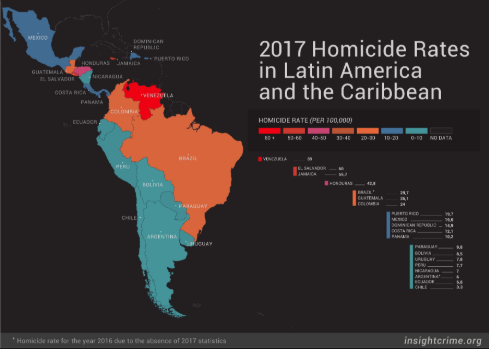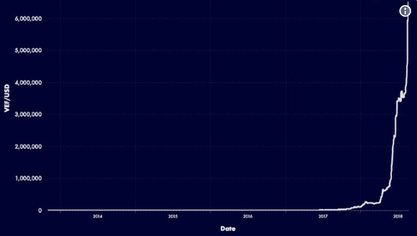- Home
-
Articles
-
2017
>
- North Korea; A Reflection of a Global Hybrid Conflict
- Turkish Crisis: World War III but nobody knows what side they are on?
- Glaciers or Rising Oceans; Damned if you do, damned if don’t, And maybe both
- Walls, Walls, Walls
- France's Hybrid Civil War
- Predictions of space exploration for the next 500 years
-
2018
>
- NOAA shows a modest 3.2mm sea level rise over the last year. How significant is the current sea level raise from a geological perspective?
- Mexico’s Quasi Hybrid Insurgency and a Reflection on Murder Rate Statistics
- Russia strives for imperial might in the context of the first World Hybrid War
- Paleohydrological events from the late Pleistocene to the early Holocene 30kya to 1500 AD
-
2019
>
- Micro Interglacial Cycles and an alternative understanding to Sea Level Fluctuations from a Paleoclimatic Perspective the Last 140,000 years
- Increasing Summer Insolation of the Northern Hemisphere Trends Towards Reduced Ice Volume; Coupled by a 400,000 year Eccentricity Cycle Extending the Holocene Interglacial
- Why are the Chinese Grumpy: Up to 500 million people died from famine, natural disasters, war, political suppression, ethnic cleansing, pestilence and such the last 2200 years
- China's New Dynasty: Middle Class, Automobile, Science, and Robot Revolution
- Orbital Variations Effects on Interglacial Behavior and Paleohydrological Events during the Quaternary Ice Age: A Compilation of MOTM editorial pieces
- Native American Society and Civilization Collapse Part I; Old World Diseases and Expansion/Collapse of Empires not Unique to European Colonization
-
2020
>
- The History of the “Sieg Heil” Nazi Salute and its shared common origins with the Roman Salute, Bellamy salute, and the swearing in of the Mexico President; And the not so innocent raising of the Fist of Black power
- In the excitement of the 2019-2020 Bush Fires in Australia; people have forgotten about the Legendary Australian Bush Fire of 1974-1975. The Current Bush Fire doesn’t even hold a torch up to it
- Covid 19 Crisis; what does age have to do about it in Italy, forgotten cancer crisis caused by the financial crisis in 2009, and why Africa doesn’t care
- A Quick Look at Nuclear Power in 2020 and Beyond
- India: Rising Economic Star with a Contentious and Troubling Past
-
2017
>
- BulletinNews
- MOTM EM
- Video
- Meetings/Symposium
- Podcasts
- Contributing Organizations
Proudly powered by Weebly
- Home
-
Articles
-
2017
>
- North Korea; A Reflection of a Global Hybrid Conflict
- Turkish Crisis: World War III but nobody knows what side they are on?
- Glaciers or Rising Oceans; Damned if you do, damned if don’t, And maybe both
- Walls, Walls, Walls
- France's Hybrid Civil War
- Predictions of space exploration for the next 500 years
-
2018
>
- NOAA shows a modest 3.2mm sea level rise over the last year. How significant is the current sea level raise from a geological perspective?
- Mexico’s Quasi Hybrid Insurgency and a Reflection on Murder Rate Statistics
- Russia strives for imperial might in the context of the first World Hybrid War
- Paleohydrological events from the late Pleistocene to the early Holocene 30kya to 1500 AD
-
2019
>
- Micro Interglacial Cycles and an alternative understanding to Sea Level Fluctuations from a Paleoclimatic Perspective the Last 140,000 years
- Increasing Summer Insolation of the Northern Hemisphere Trends Towards Reduced Ice Volume; Coupled by a 400,000 year Eccentricity Cycle Extending the Holocene Interglacial
- Why are the Chinese Grumpy: Up to 500 million people died from famine, natural disasters, war, political suppression, ethnic cleansing, pestilence and such the last 2200 years
- China's New Dynasty: Middle Class, Automobile, Science, and Robot Revolution
- Orbital Variations Effects on Interglacial Behavior and Paleohydrological Events during the Quaternary Ice Age: A Compilation of MOTM editorial pieces
- Native American Society and Civilization Collapse Part I; Old World Diseases and Expansion/Collapse of Empires not Unique to European Colonization
-
2020
>
- The History of the “Sieg Heil” Nazi Salute and its shared common origins with the Roman Salute, Bellamy salute, and the swearing in of the Mexico President; And the not so innocent raising of the Fist of Black power
- In the excitement of the 2019-2020 Bush Fires in Australia; people have forgotten about the Legendary Australian Bush Fire of 1974-1975. The Current Bush Fire doesn’t even hold a torch up to it
- Covid 19 Crisis; what does age have to do about it in Italy, forgotten cancer crisis caused by the financial crisis in 2009, and why Africa doesn’t care
- A Quick Look at Nuclear Power in 2020 and Beyond
- India: Rising Economic Star with a Contentious and Troubling Past
-
2017
>
- BulletinNews
- MOTM EM
- Video
- Meetings/Symposium
- Podcasts
- Contributing Organizations



 RSS Feed
RSS Feed